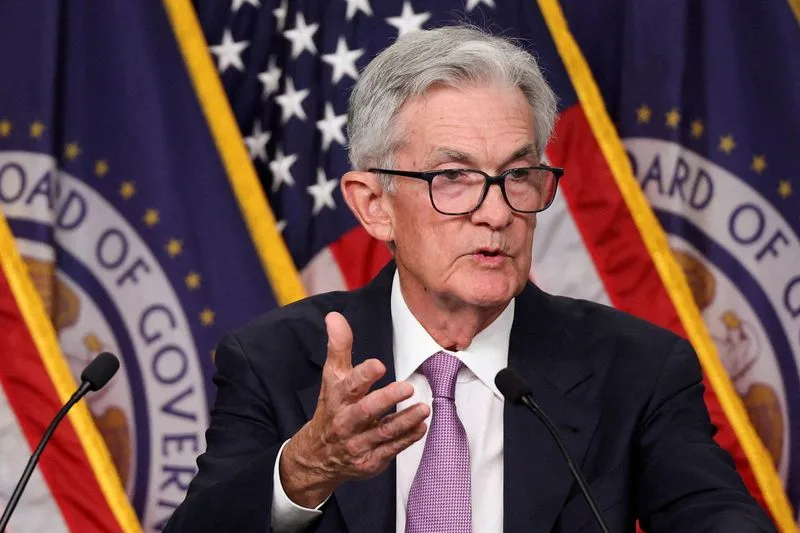Fed’s Powell set to speak as economists fret about a policy mistake, election risk

A mistake by the U.S. central bank in setting interest rates during the last phase of its inflation battle is the main risk that could undercut the economy over the next year, according to a new survey of economists released as Federal Reserve Chair Jerome Powell was set to speak on Monday.
Among 32 professional forecasters surveyed recently by the National Association for Business Economics, 39% cited a “monetary policy mistake” as the “greatest downside risk to the U.S. economy over the next 12 months.” By contrast, 23% regarded the outcome of the Nov. 5 U.S. presidential election as the biggest downside risk and the same number cited an intensification of the conflicts in Ukraine and the Middle East.
The responses in the survey, which was released on Sunday, show the intense focus on the Fed as it eases monetary policy while hoping to both keep inflation on a steady decline back to its 2% target and avoid a significant additional rise in an unemployment rate that has been increasing modestly for a year.
Powell is scheduled to address the association at 12:55 p.m. CDT (1755 GMT) in Nashville, Tennessee, and is expected to elaborate on the Fed’s decision to cut its benchmark interest rate by half a percentage point at its Sept. 17-18 meeting and on the considerations that will frame an expected series of reductions in borrowing costs over the rest of this year and in 2025.
The Fed is expected to cut rates again, either by a quarter or half of a percentage point, at its Nov. 6-7 policy meeting.
Overall risks to the economy are increasing, the association’s panel of economists indicated, with 55% saying it was more likely the economy would perform worse than expected than do better – with Fed policy topping the list of possible speed bumps.
As it stands, the panel at the median said U.S. economic growth is expected to slow to 1.8% next year, from an estimated 2.6% this year, with the unemployment rate rising to 4.4%, from the current 4.2%, and inflation ending next year at 2.1%.
Two-thirds of respondents said they did not expect a recession until at least 2026.
‘JUST IN TIME’
Such results would likely be cheered by Powell and the Fed as a textbook “soft landing.” Inflation, as measured by the central bank’s preferred personal consumption expenditures price index, has fallen from a peak above 7% in 2022 to 2.2% last month without a recession or a sharp rise in the unemployment rate. While the jobless rate has risen to 4.2% from half-century lows last year of 3.4%, it remains well below the average of 5.7% recorded in Bureau of Labor Statistics data since the late 1940s.


